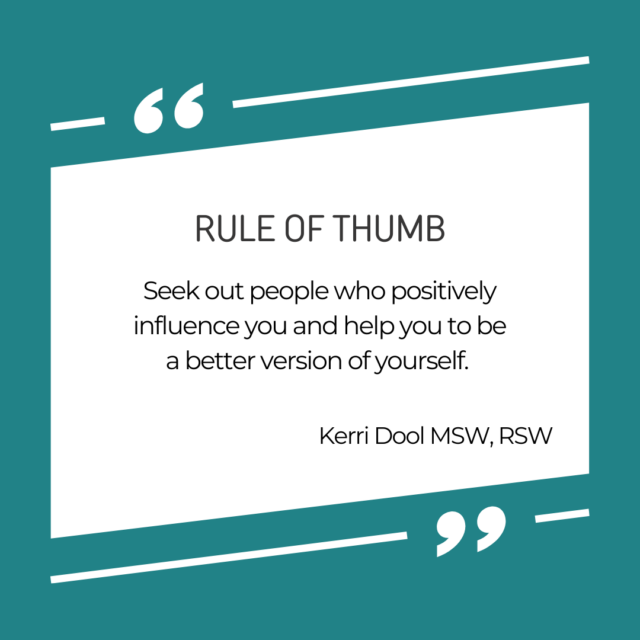It doesn’t matter who you are, how you grew up, how much money you have or don’t have, we have all compared ourselves to someone or something. It’s human nature.
It is especially difficult during the holiday season not to look at other families and what they are sharing on social media. We may feel a little inept in our own lives or wish that we had something more comparable to what they are showcasing. Sometimes we even compare our kids, our partners, our parents to others and wish that they could just be more like those people. If they were, our lives would be so much better…and no, that’s probably not the case by the way.
The truth is, these social media posts and representations are the best, edited versions of what actually goes on in a household. And yet…we accept it as truth and compare, compare, compare.
It can leave us feeling a range of emotions from rejection, sadness, envy to self-deprecation.
It isn’t just a result of social media influences though, it’s a tendency we must recognize within ourselves. It can happen when we are in the company of friends, colleagues or even when we are walking down the street looking at strangers (i.e. how much more attractive, happier, wealthier, you fill in the blank …) that person is.

Comparison can be a form of self-torture that nobody benefits from and is a sure recipe to lower someone’s self-esteem in an instant.
Partly, we engage in comparison when we feel something is missing within ourselves, either consciously or subconsciously. It’s usually the feeling (i.e. happiness, love, acceptance) and not “the thing” that we are seeking.

Partly, we engage in comparison when we feel something is missing within ourselves, either consciously or subconsciously. It’s usually the feeling (i.e. happiness, love, acceptance) and not “the thing” that we are seeking.
It’s that old adage of “I’ll be happy when I can take trips like so and so” or “if I could only find a partner, I’d finally feel fully loved” or “If I run a successful business, then people will respect and like me.” The quest for approval from others is elusive though. It’s like chasing a rainbow and it can sabotage our own happiness in what we actually have.
We may compare ourselves to people who are struggling because we relate to them. We may tell ourselves that we are not as “bad off” as that person, rationalizing our own situation and need for change, or we may seek out connection with them because we feel they will understand us and not expect anything more from us. This can hinder us.
Rule of thumb: Seek out people who positively influence you and help you to be a better version of yourself.
Now that we understand the effect comparison can have on our self-esteem and general outlook on life, let’s look at how we can manage it.
Core beliefs: What we fully believe about ourselves shapes how we think and how we act on a daily basis. If we believe that we are unworthy of success or we can’t emotionally handle a relationship, for example, we then act in a way that self-fulfills this belief and often sabotages good things in our lives.
We can change our core beliefs by:
This takes some practice and I’d highly recommend working with a counsellor on this one.
Self-Acceptance: When we appreciate ourselves, we look at how far we have come and all of the lessons and growth that have occurred. This feels much more encouraging and validating. Staying in our own lane requires us to look within ourselves and use our lives as the benchmark for our own contentment.
Self-Compassion: We can often be really critical of ourselves, more so than anyone else in our lives. It’s important to be in tune with how we speak to ourselves.
Are we making encouraging statements or kind expressions towards self or does it feel harsh and self-rejecting?
The most important relationship that we will ever have is the one that we first experience with ourselves. We cannot give love to others, until we truly value, appreciate, and reflect that love onto ourselves. This is a tricky one and our self-compassion program at our office can help with this.
Self-Actualization: When we try to live a life according to someone else’s ideals or values, it is simply unfulfilling.
Now, repeat after me: This is my life and I get to determine the path I would like to follow, the achievements that are important to me, and the experiences I wish to have. My life is self-determined.
Perhaps this will cause you to reflect a little more on what it is that is important to you. It changes throughout our life and that’s completely o.k. and expected.
Ask yourself the following:
Do I like the life I’ve created for myself?
Is there anything I’d like to change (if so, make a list and note some small steps you can start taking toward these changes)?
We may take a detour in life that is wonderfully enchanting and filled with delights.
Remember, to be uniquely you, is to be unequivocally authentic and amazing. Nobody compares to that!
Warmest Wishes,

Start with one of our Wellness Team Members!
Copyright © 2021 K Dool Social Work Professional Corporation
Request a call for more information on our services